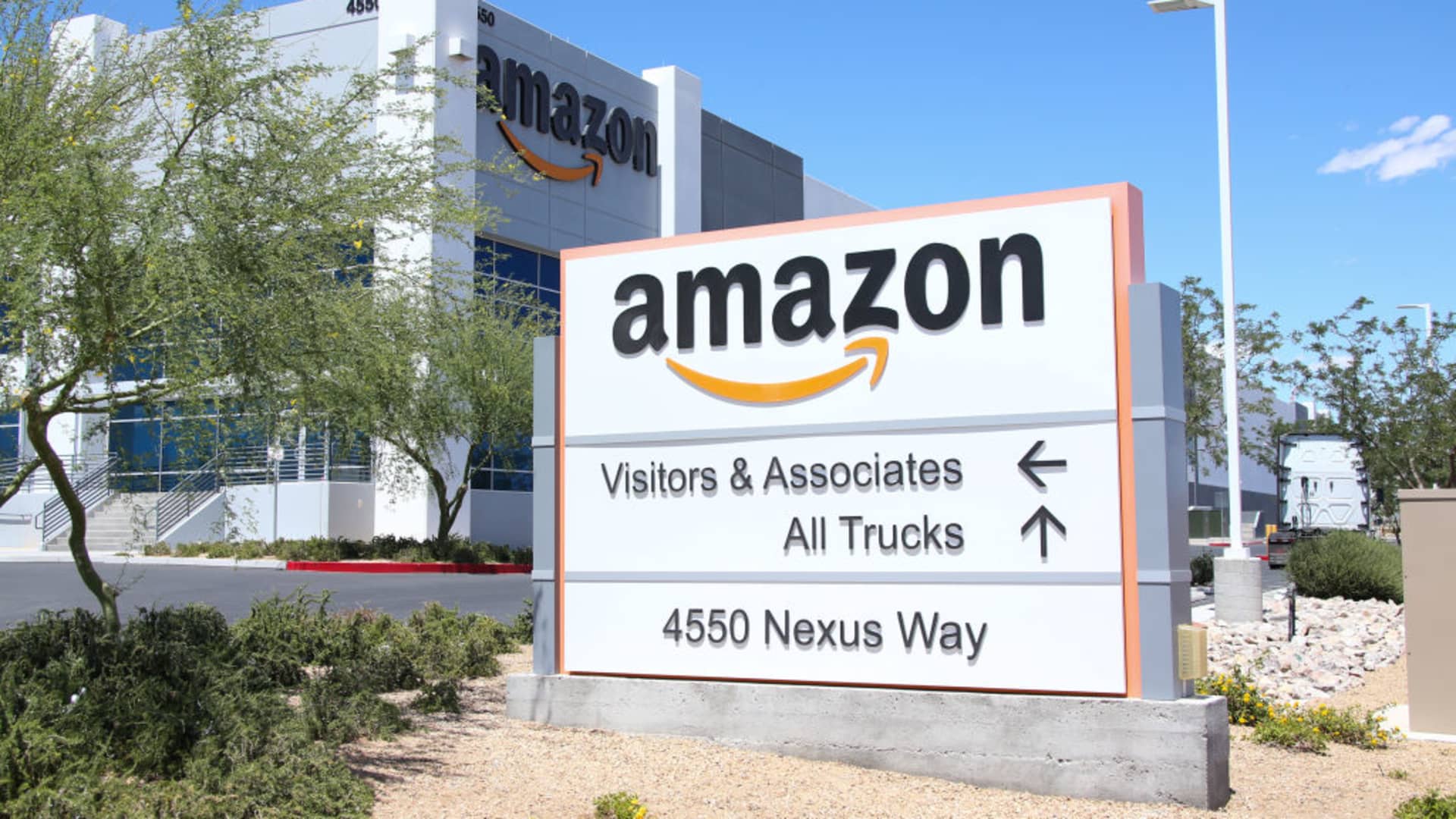adanyabegini.blogspot.com

A sign directs traffic at an Amazon fulfillment center. Being the world's largest online retail company, Amazon operates more than 175 fulfillment centers worldwide, totaling in over 166 million square feet.
Gabe Ginsberg | Lightrocket | Getty Images
Adblock test (Why?)
"here" - Google News
June 07, 2022 at 12:13AM
https://ift.tt/tYMUXIc
Here's why we're fans of Amazon's 20-for-1 stock split - CNBC
"here" - Google News
https://ift.tt/xwip6Uk
https://ift.tt/8SPn3Ok

No comments:
Post a Comment